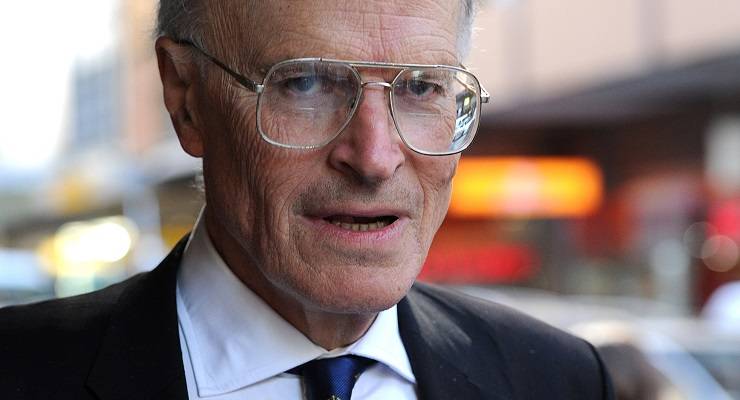
The Me Too era has seen high-profile, powerful men called to account for workplace behaviour — from sexual assaults to sleazy texts — that in the past were more likely to go unreported or hushed up through private settlements.
But these men are not the ones who bear the brunt of career and reputational harm. Instead, it’s the women who bring the harassment to light who are the major victims.
With the “untouchable” former High Court judge Dyson Heydon now accused of serial sexual harassment, it seems as though we’re in a new era of accountability in which women can finally speak up about unwanted behaviour. But there’s an ongoing backlash of concern that men’s careers and reputations are too easily the target of sexual harassment allegations.
The appeal decision in the Geoffrey Rush defamation case, handed down last week, is a reminder of the realities of raising allegations of unwanted sexual behaviour in Australia. It upholds the largest individual defamation payment in Australia’s legal history, compensating Rush, not for any formal complaint made against him — there was none — but for salacious reporting.
In the feedback loop of media scandal and men’s reputations, the wider discussion about the professional and personal harm of harassment to women is totally lost.
Women bear the brunt
A 2018 Australian Human Rights Commission report found that roughly 17% of sexual harassment incidents are reported. This leaves the overwhelming number of cases unaddressed and uncompensated. Women may instead leave their job, transfer to a role with fewer opportunities or attempt to avoid the person who harassed them. Any career effects this may have on women are largely invisible.
Of those who have made a formal report or complaint about sexual harassment, 43% reported experiencing negative consequences as a result
In 2018, ABC journalist Ashleigh Raper chose not to report an alleged assault by former NSW Labor leader Luke Foley because she feared it would impact her job — “it is clear to me that a woman who is the subject of such behaviour is often the person who suffers once a complaint is made”.
A Google search for “Eryn Jean Norvill” brings up results almost entirely focused on the Geoffrey Rush case, not her significant career achievements.
Those who experience sexual harassment often also worry more about their harasser than themselves. While women may worry about their own career prospects if they speak up, one of the major reasons for not reporting sexual harassment is that the harassed person “feared negative consequences for the person or people who harassed me” (20%). That consideration is greater than concern for their own career (16%).
Seeing reasonable reports about unwanted behaviour escalated out of their control does nothing to help women report harassment.
Women trying to keep things confidential have been publicly “outed” in the media too. In the high-profile cases involving Luke Foley, Barnaby Joyce and Geoffrey Rush, the women involved tried to keep the alleged harassment confidential, took minimal or no action, yet were all publicly “outed” as targets of alleged harassment.
Catherine Marriott, who made a confidential report of sexual harassment against Joyce, has said that the leaking of her name to the media and the ensuing publicity was “horrific”. Eryn Jean Norvill, who had simply raised informal concerns to a manager, that she asked to remain confidential, was dragged into the national spotlight as a reluctant witness in the Rush case.
The Me Too experiences in Australia show how understandably unwilling women have been to speak up publicly. When they do, their stories have been hijacked by political and media interests focused on the man’s reputation, not the impact on the women.
Sexual harassment, despite its name, is not primarily about sex. It is about the way that women are not treated equally at work.
We need to stop focusing on men’s reputations and turn our attention to the harm to women. That’s the change that will actually signal a new era.
For help or information on sexual harassment and assault, visit 1800RESPECT or call them on 1800 737 732. The Men’s Referral Service is aimed at men who need help to stop violent or controlling behaviour. You can call on 1300 766 491.







Crikey encourages robust conversations on our website. However, we’re a small team, so sometimes we have to reluctantly turn comments off due to legal risk. Thanks for your understanding and in the meantime, have a read of our moderation guidelines.